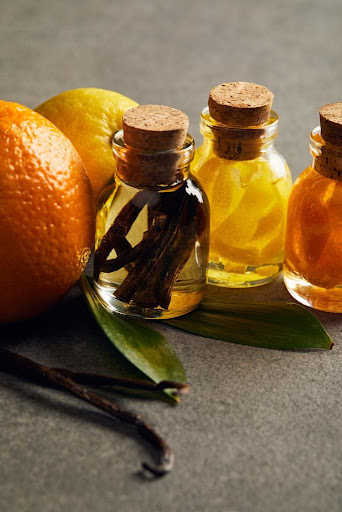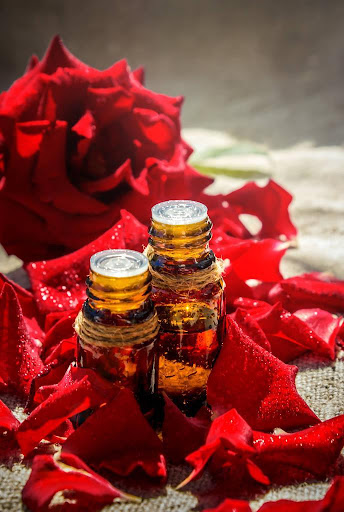 Introduction
Introduction
Essential oils are concentrated plant-based extracts that are typically used for aromatherapy and other holistic healing practices. They are widely believed to provide a variety of health benefits, such as reducing stress and improving sleep. Essential oils can be used in many different ways, including as massage oils, diffused in the air, added to baths, blended with other products such as lotions or soaps, and consumed orally. When used properly, essential oils can be an excellent way to improve physical and emotional well-being.
History of Essential Oils
Essential oils have been used throughout the ages for healing, spiritual practices, and beauty treatments. These powerful plant extracts are becoming increasingly popular in modern times, but their roots go back centuries. Let’s explore the history of essential oils hong kong and how they’ve evolved over time.
- Ancient Use: The use of essential oils dates back to ancient Egypt when they were used in religious rituals and mummification processes. They were also a major part of traditional Chinese medicine, where herbal remedies are still widely used today. In India, Ayurvedic medicine is based on the use of herbs and spices like cardamom, cinnamon, and sandalwood that contain some type of essential oil. The ancient Greeks also valued essential oils for their therapeutic properties; Hippocrates himself wrote about using them to treat various ailments such as headaches or skin irritations.
- Modern Use: Modern-day aromatherapy has its roots in French chemist René-Maurice Gattefossé’s discovery that lavender oil could help heal his burn after an accidental laboratory explosion in 1910s France–a revelation he later published as “Gattefossé’s Aromatherapy.
Types of Essential Oils
Essential oils have been used for centuries for medicinal, cosmetic, and spiritual purposes. They are highly concentrated plant extracts that contain volatile aromatic compounds. In modern-day aromatherapy, essential oils are used to promote physical and emotional wellness. There are a variety of essential oils available, each with its own unique properties and benefits.
The most common types of essential oils include citrus, floral, herbaceous/spicy, woody/resinous, and medicinal/therapeutic. Citrus essential oils come from the zest or peel of citrus fruits like oranges and lemons. These scents evoke feelings of freshness and cheerfulness in many people because they are often associated with happy memories or natural experiences such as a summer day at the beach or a freshly cut lemonade stand on a hot summer afternoon. Floral essential oils come from flowers like lavender, rose, or jasmine; they typically offer calming effects as well as provide an uplifting feeling when inhaled or applied topically to the skin.
Herbaceous/spicy essential oils come from herbs like clove bud oil which provide warming sensations when applied topically to the skin due to their spicy nature; these can be great for easing aches and pains while providing energy.
 Benefits of Essential Oils
Benefits of Essential Oils
Essential oils are natural aromatic compounds found in plants. These oils have been used for centuries to improve health and beauty, as well as promote relaxation and overall well-being. In recent years, essential oils have grown in popularity due to their potential therapeutic benefits. Here are some of the key benefits of essential oils:
- Stress Relief: Many people turn to essential oils for stress relief because of their calming effects on the body and mind. Lavender is a popular choice for its relaxing properties, while other scents like chamomile and ylang-ylang can help reduce feelings of tension and anxiety.
- Improved Sleep: Essential oils can be used to create an atmosphere conducive to better sleep quality by diffusing them into the air or applying them topically before bedtime. Scents such as lavender, cedarwood, or sandalwood can help relax your body and mind so you can drift off into a restful slumber more easily each night.
- Natural Pain Relief: Essential oils offer natural pain relief without the use of over-the-counter medications that may come with unwanted side effects or addiction risks associated with prescription drugs like opioids. Some popular choices include peppermint oil for headaches and eucalyptus oil.
Safety and Precautions Regarding Essential Oil Usage
The use of essential oils has become increasingly popular over the past several years as more and more people look to natural remedies for their health and wellness needs. Essential oils are derived from plants and have a variety of therapeutic benefits, including calming effects, pain relief, increased energy levels, improved sleep quality, reduced stress levels, and a host of other potential health benefits. However, it is important that you take proper safety precautions when using essential oils to protect yourself from any potential harm.
First and foremost, it is important to do your research before using any essential oil. Each oil has its own unique properties and can interact with medications or other substances differently. Be sure to read up on the oil you plan on using to determine if there are any contraindications or side effects associated with it. It is also important to only purchase essential oils from reputable sources that have been properly tested for purity and potency so that you know exactly what you’re getting when you buy them.
It’s also important to dilute your essential oils before applying them directly onto the skin or inhaling them directly into your lungs. Many people make the mistake of using undiluted essential oils which can lead to skin irritation or even toxicity if used.
Conclusion
Essential oils are a powerful, natural way to help improve your health and well-being. They can be used to promote relaxation, reduce stress, and alleviate physical ailments. With a wide variety of essential oils available on the market today, there is something for everyone. If you are looking for an effective and natural solution to improving your overall health, essential oils may be worth considering.




